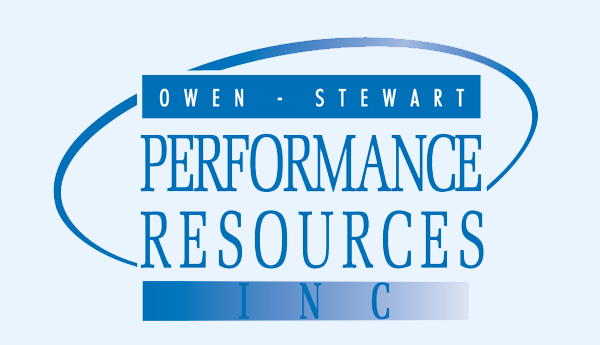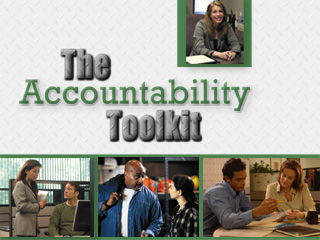Accountability Toolkit
- Chaptered video clips on DVD
- Chaptered video clips also on CD/USB for importing into PowerPoint Presentations or eLearning
- Leader's Guide including discussion questions for each clip
- Supports staff development with 9 principles of personal responsibility
- Improves efficiency by emphasizing the importance of clear communication, goal setting and follow through
- Maximizes training budgets by providing a library of video clips that can be used in a variety of applications
$795.00 – $825.00
What makes a person accountable? These days, when everyone seems to have a different idea of what “accountability” means, it’s hard to know. But when you simply look at it from the perspective of what it takes to be a person others can count on, certain specific behaviours emerge.
This Toolkit contains 38 video clips that illustrate these behaviours in a variety of workplace settings. They can be shown to make key points in meetings and presentations, or used as content for internal courses you are building.
The video clips fall within 9 categories of personal responsibility and accountability. They are diverse in setting — many take place in a generic work environment, some occur in a manufacturing or hospitality environment and others feature healthcare or education workers. The clips are provided on DVD and CD/USB so that you can play them right off the DVD or embed them into a PowerPoint presentation or eLearning.
The clips fall under these categories and can be used to make the following points:
- Take Ownership & Keep Commitments – When accepting responsibility for a task or project, take full ownership and do what you say you’re going to do. For clarity, set deadlines – then keep them. When necessary, communicate and renegotiate commitments that cannot be met.
- Be Proactive – Take the initiative in seeking improvements to processes and practices. Work to improve your own skills, and influence others toward improvement.
- Communicate With Clarity & Set Measurable Goals – Getting to the right result requires clear agreements and an understanding of expectations and instructions. Accountability for results begins with clear directions, and places responsibility on both parties for clarification.
- Be Ethical – Know what’s right-by law, by policy, by procedure, by best professional practice-and act accordingly. Make decisions for the best outcome when two “rights” conflict. Speak out when someone acts unethically.
- Be a Problem Solver – Apply your own experience and knowledge to every problem. With this problem-solving mindset, you’ll plan and take action towards a solution, rather than waiting for others to get things started.
- Serve Customers Professionally – Every person you serve and work with deserves your best effort, whether it’s a problem to be solved or a transaction to complete. Know the technical and procedural aspects of your work and bring a positive attitude to the service you provide-customers expect competence and are paying to receive it.
- Don’t Be Afraid to Speak Up – Know what you need and what you deserve. In a professional manner, let others know it too. Those you work with and for may not realize when their actions are getting in the way. Claim what you need to do your best work.
- Accept Feedback and Learn From Mistakes – Learning and changing direction happen quickly and frequently in an accountable environment. Listen non-defensively, give proper consideration to what’s being said, choose to adjust, and move on.
- Supervising and Managing an Accountable Workforce – Often held accountable for the work of others, managers and supervisors must first model accountable behaviours, then learn to require this type of personal responsibility from those who report to them. The manager’s tone of voice, choice of words and standard-setting behaviors can make or break an accountable workteam!
The Toolkit package includes a Leader’s Guide with discussion questions for each clip that will help stimulate further discussion and learning.


